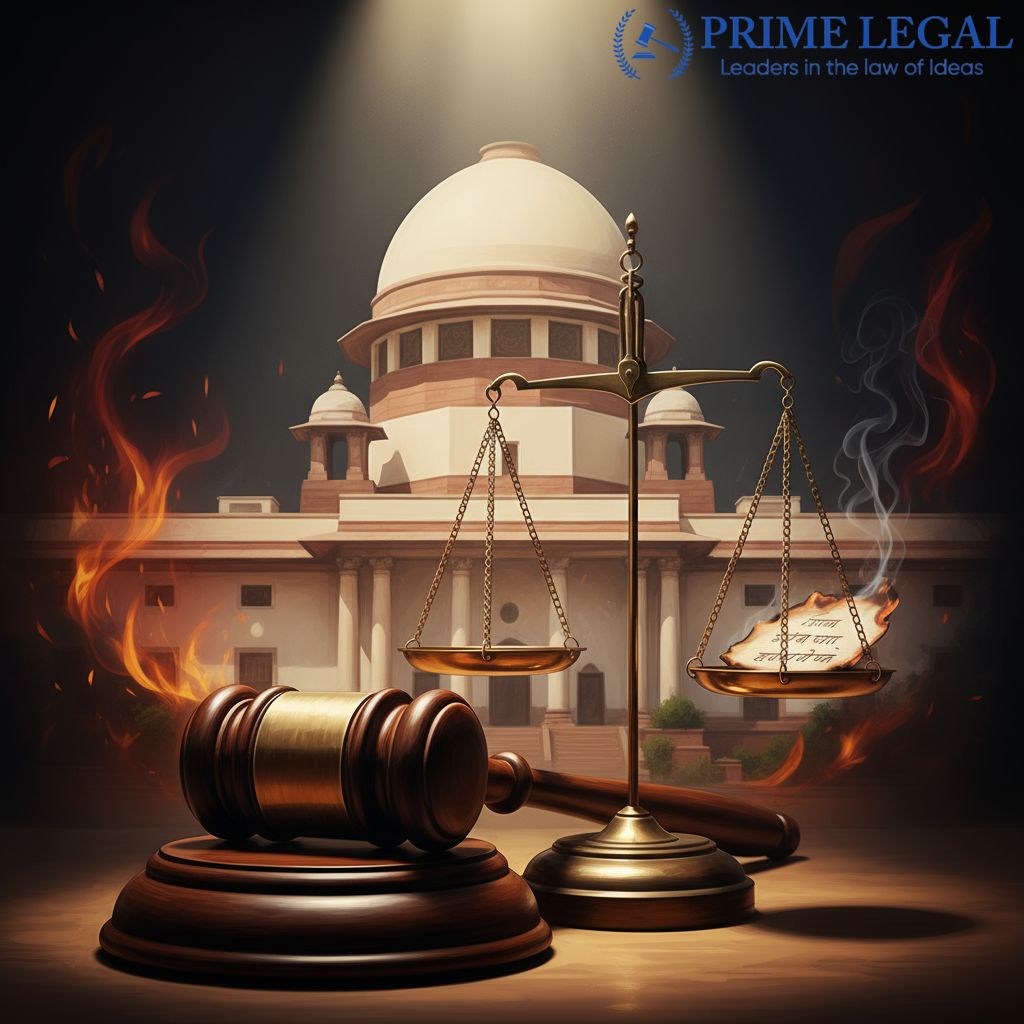Introduction
A fire at Orion Conmerx’s premises in September 2010 sparked the dispute, which was heard by a bench of Justices Dipankar Datta and Manmohan. According to the final surveyor’s report, which said that the fire was “not accidental,” the National Insurance Company rejected the claim; however, the Court considered this justification to be seriously faulty. The Supreme Court has ruled that the cause of a fire is irrelevant in a fire insurance claim provided it is proven that the insured has suffered losses as a result of the fire and there is no accusation or conclusion of fraud or incitement. The National Consumer Disputes Redressal Commission’s order, which partially upheld the insurer’s obligation but lowered the amount granted, was the subject of cross-appeals before the court. The disagreement concerned a 2010 fire damage claim that the insurer rejected on the grounds that there was insufficient evidence to support the assertion that the fire was unintentional.
Background
A fire had damaged the insured’s building structure, machinery, raw materials, stocks, and other assets. The insurer rejected the claim, arguing that the final surveyor had questioned the amount of loss reported and had not definitively declared the fire to be accidental. After an appeal, the National Commission ordered modest compensation and partially accepted the case. Angry, both parties went to the Supreme Court. Using police records, surveyor reports, bank audits, stock accounts, cancelled export orders, production logs and cost sheets to prove actual losses, the insured contended that the denial was capricious. The insurer argued that the insured had not provided proof of the number or worth of damaged goods and that the fire was not an accident.
Keypoints
Expression “ Fire” : The Court discussed what constitutes fire and held that a) There must be an actual fire; hence mere heating or fermentation will not be sufficient to render the insurers liable for loss occasioned thereby. b) There must be something on fire which ought not to have been on fire. c) There must be something in the nature of an accident, but a fire occasioned by the wilful act of a third person without the consent of the Insured, is to be regarded as accidental for the purpose of this rule.
Good Faith Principle: The Court ruled that the cause of the fire is only considered when there is any evidence to suggest that there is fraud or breach of the doctrine of uberrima fide. If the fire was wilfully caused by the insured or with their consent, the claim amounts to fraud and is unenforceable. However, as affirmed in New India Assurance Co. Ltd. v. Mudit Roadways (2024) 3 SCC 193, the court held that the exact cause such as short-circuit or anything else is immaterial as long as the insured is not the instigator of the fire.
The Fire Was Accidental and Within Policy Terms: In this case, multiple reports including those from the police, preliminary surveyor, architects, and chartered accountants confirm actual fire damage. The final surveyor’s report does not establish any fraud, negligence, or intentional act by the insured, nor does it show that the fire falls within any exclusion clause. Hence, the incident qualifies as an accidental fire within the meaning of the insurance policy
Insurer’s action of rejecting was held to be incorrect: The Court reasoned that the final surveyor’s conclusion that the fire was found to be accidental and that it lacked proper reason. . The insurer’s reliance on such a flawed report to reject the claim was arbitrary, perverse, and contrary to both the record and the principle of good faith. The Court, therefore, upheld the National Commission’s well-reasoned view in favor of the insured.
Recent Developments
The Court has firmly clarified that insurers cannot deny claims merely because the precise cause of the fire isn’t proven as long as there’s no evidence of fraud or intentional burning. This means the burden of proof on insured parties is now lighter. Fire must be treated as accidental by default unless the insurer proves deliberate wrongdoing. This pushes insurers to act in good faith and prevents arbitrary repudiation.
Conclusion
The Court concluded that in light of the above findings and bearing in mind that the primary objective of a fire insurance policy is to indemnify the insured and restore them to the same financial position they were in prior to the loss, the Supreme Court dismissed the appeal filed by the Insurance Company and allowed the appeal filed by the Insured. However, it modified the relief to the extent that simple interest shall be payable at the rate of 6% per annum from three months after the date of the fire incident until the date of final payment.
“PRIME LEGAL is a full-service law firm that has won a National Award and has more than 20 years of experience in an array of sectors and practice areas. Prime legal falls into the category of best law firm, best lawyer, best family lawyer, best divorce lawyer, best divorce law firm, best criminal lawyer, best criminal law firm, best consumer lawyer, best civil lawyer.”
WRITTEN BY S. KAVIYA SRI


